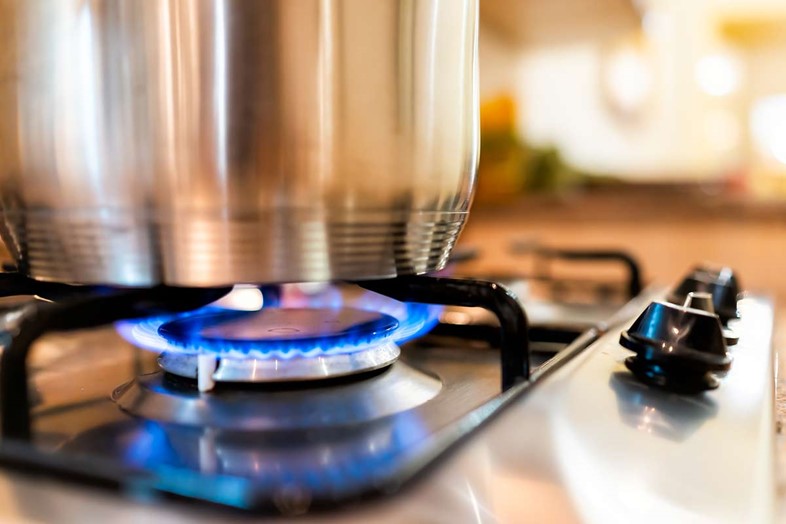Stay and look when you cook! Keep an eye on what you fry! Stand by your pan! These are just a few of the catchy phrases you’ll hear from local fire departments and fire safety experts when talking about home fire safety. Our homes are where we spend most of our time, and therefore should be safe havens.
By Casidy Anderson, Community Risk Reduction Officer at Minneapolis Fire Dept, and Bob Reif, Fire & Life Safety Educator, Minnesota State Fire Marshal Division

Did you know that our homes are where we are most likely to experience a fire? Cooking (or, more specifically, unattended cooking) is the #1 cause of home fires, causing — on average — 50 percent of home fires in the United States. During the winter holidays, that number jumps to over 70 percent. 70 percent of those fires are caused by unattended cooking. All of these fires are preventable if people would practice safer habits in the kitchen.
If you’re cooking this holiday season, remember the following tips:
- Stay and look when you cook! If you’re using the stovetop, stay in an area where you can watch what’s cooking. If you need to leave the kitchen for any reason, for any amount of time, turn the burner off. You can turn the burner on when you return. The #1 cause of kitchen fires is food left cooking on the stovetop, unattended and forgotten.
- Keep an eye on what you fry! Frying can be volatile if not done safely. Protect yourself from oil splatters that can burn and let the pan and oil cool on an unused burner before disposing of the oil in a cardboard or plastic carton. If the pan contents catch fire, approach the burner carefully and turn it off, then cover the pan with a tight-fitting lid or cookie sheet. Let the pan cool completely before moving it. As a second option, use a fire extinguisher. If you do, be sure to sweep the extinguishing agent over the fire. Do not blast it directly into the pan and run the risk of splashing flaming contents all over the kitchen. NEVER put water on a grease fire or carry the pan with flaming contents to the sink or outdoors, as the fire can easily spread, and the spilled contents can cause a burn injury.
- Stand by your pan! Keeping a watchful eye on the stove is worth mentioning twice. Consider using a timer to remind you when food on the stovetop or in the oven or slow-cooker is done. A lot of fire departments hear from people who had a kitchen fire: “But I only stepped away for a second!” We can all get distracted and forget about the pan simmering on the stove. Fires grow quickly and will consume the kitchen in a few minutes. If you need to step away from the kitchen while something is cooking on the stove, turn the burner OFF until you return.
- Keep your cook space clean and clear of flammable items. Spills on the oven floor and stovetop can catch fire and create an unpleasant smoky condition in your home. Keep towels, hot-pan holders, utensils and all other items a safe distance from the oven and stove.
- Wear short or tight-fitting long sleeves when cooking. Long, loose sleeves are at risk for catching fire when working at the stovetop.
- Have working smoke alarms. If a smoke alarm sounds from burnt food or another non-emergency, open a window to clear the air until silenced. If you cook a lot and experience your smoke alarm sounding frequently from cooking, consider investing in a smoke alarm with a “hush” button which will silence the alarm when you press it. Consider purchasing a “kitchen” (photoelectric) smoke alarm for the area near the kitchen.
Fires are preventable
Most home fires can be prevented by just practicing safe habits in the home. As we get older, we need to be especially mindful of keeping a home safe from fire and fire-related injury. According to the United States Fire Administration (USFA), Americans 65 years and older are almost three times more likely to die in a house fire, and those of us over 85 years old are more than five times as likely. Safe habits in the kitchen will prevent the most common type of house fire: COOKING. Have a safe holiday season!